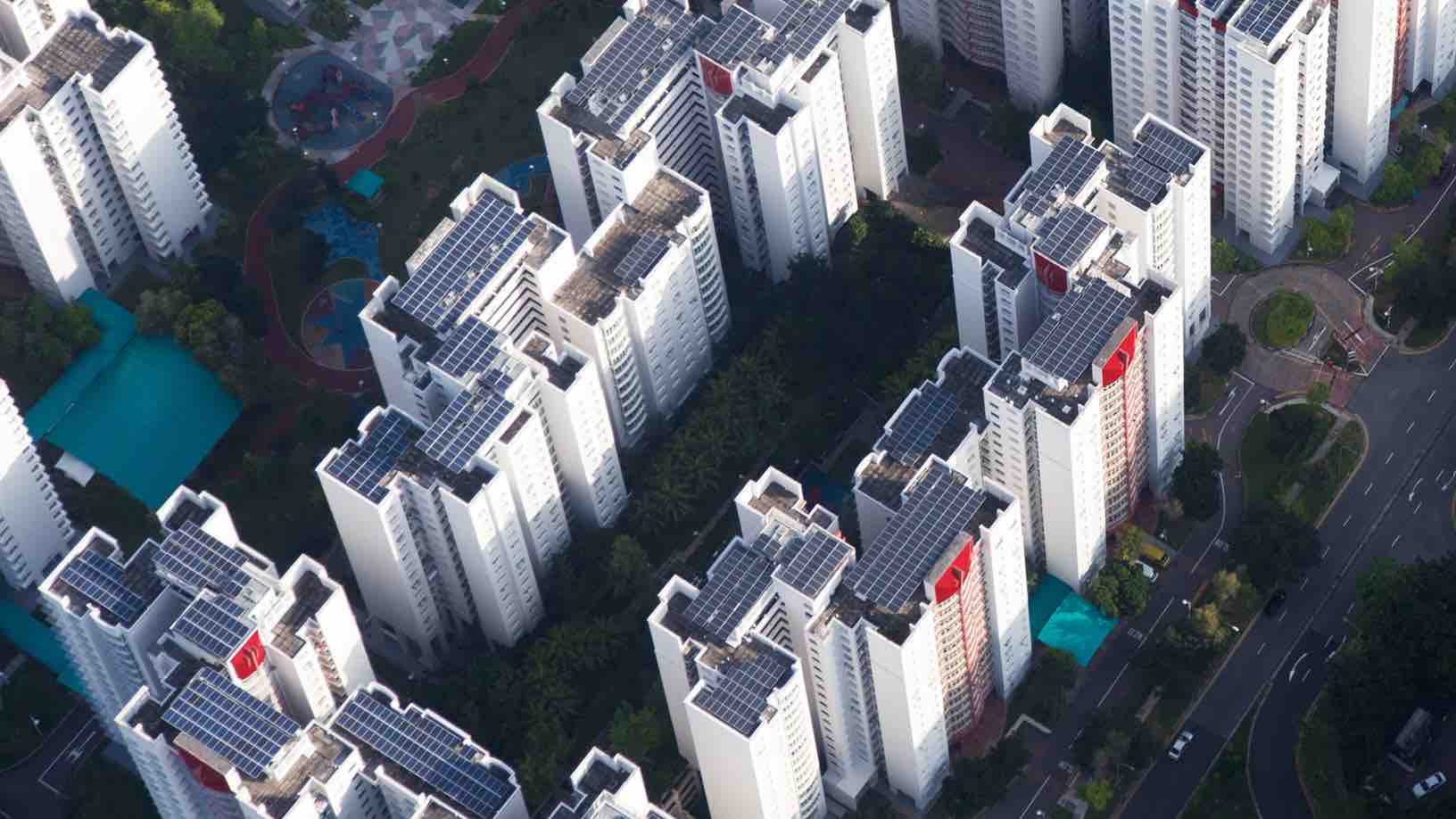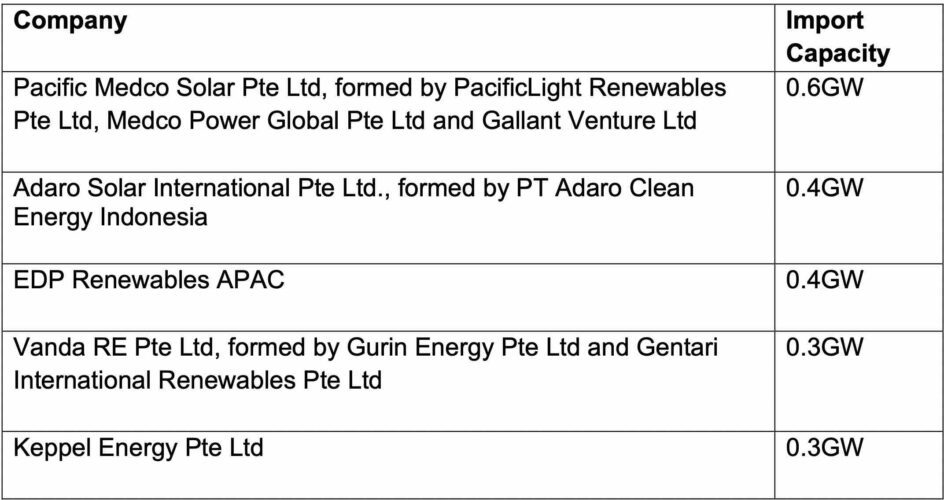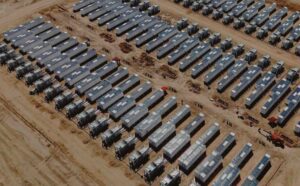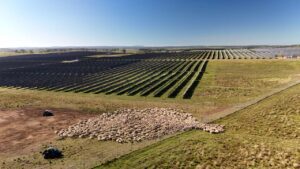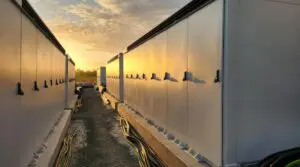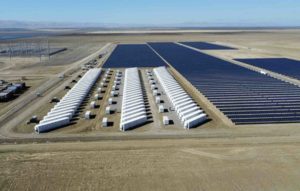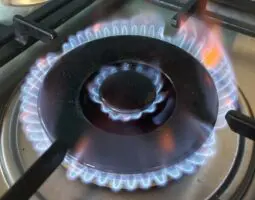A joint venture led by New Zealand investment group Morrison & Co has landed one of five key mandates to supply a total of 2GW of firm solar power to Singapore, effectively stealing a march on the solar export plans of Sun Cable and its backer Mike Cannon-Brookes.
The Singapore Energy Market Authority on Friday named five consortia to deliver 2 gigawatts (GW) of clean power from Indonesia, which it says will need to operate at a “load factor” of 75 per cent, and will require a total of 11GW of solar PV and 21 gigawatt hours (GWh) of battery storage.
The projects need to be built by 2027, and are part of Singapore’s plans to source 4GW of clean power by 2035. It has already signed up for a 1GW supply agreement from Cambodia
Vanda RE is one of the five consortia that have been given a “letter of conditional approval” to go ahead with their plans, which in the case of Vanda involves a 2GW solar farm on the Riau Islands, close to Singapore, and 4.4 gigawatt hours of battery storage.
Vanda is 75 per cent owned by Gurin, in turn controlled by New Zealand’s Morrison & Co, and is 25 per cent owned by Gentari, the renewable energy arm of Malaysian oil and gas giant Petrobas.
The mandate does not make Sun Cable’s plans redundant, in fact it confirms Singapore’s hunger for clean energy as it looks to boost its energy security and fossil fuel price exposure – it is now 95 per cent dependent on imported gas.
Singapore is still looking for another 1GW of clean supply, and possibly more, which leaves a narrowing space for Sun Cable – with its own plans to build a 20GW solar farm and up to 42GWh of battery storage, and a 4,300km sub sea cable.
Sun Cable will not become a reality until after 2035, and it hopes to deliver around 1.75GW to Singapore, and says it has received interest from Singapore customers for more of that capacity.
Vanda’s plans for the $3 billion Riau solar and battery projects appear to trump those flagged by another Singapore based entity, Vena, early last month. Vena’s project was not among the five chosen by the EMA late last week.
“Singapore is 95 per cent dependent on gas, and it has an energy security and an energy price problem,” Assad W. Razzouk, the CEO of Gurīn Energy, told RenewEconomy on Monday.
Razzouk believes that Singapore will eventually seek more than 4GW and will “definitely” seek to bring some from Australia. “The more countries the merrier,” he said.
The Vanda mandate is for 300MW of firm solar supply, but Razzouk says this will require a 2GW solar farm and the 4.4GWh of battery storage. “You have to overbuild massively the solar and the battery,” he said.
But the sub-sea cable, from the Riau Islands, will only need to be around 50kms long. “I can see some of the islands from my office,” he said from Singapore.
The other winners of the “conditional letters of approval” were two consortia from Indonesia, one from Singapore, and another European group. Their awards vary from 300MW to 600MW.
Razzouk says the power generated by Vanda RE’s facilities can be sold via long-term power supply agreements to commercial users in Singapore.

